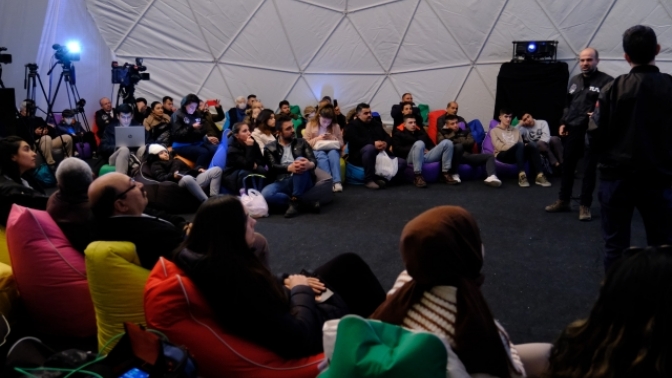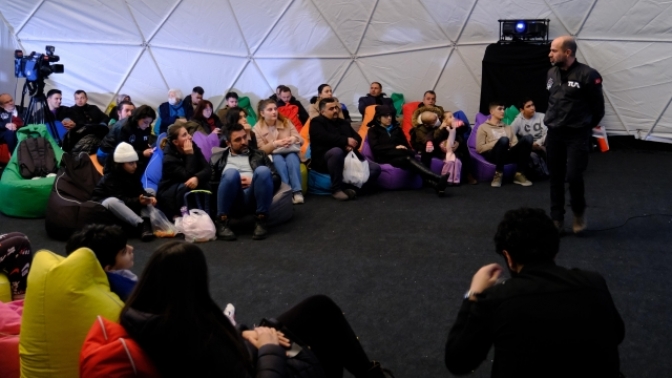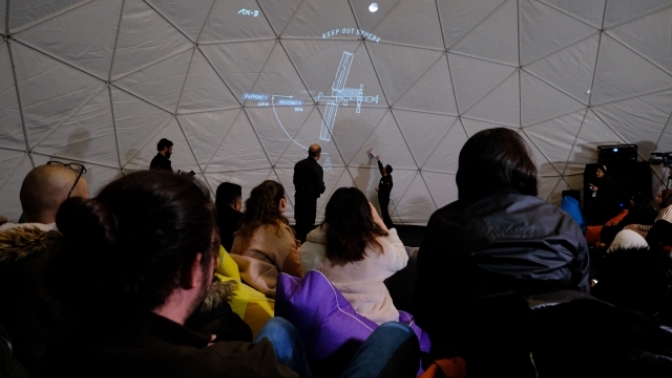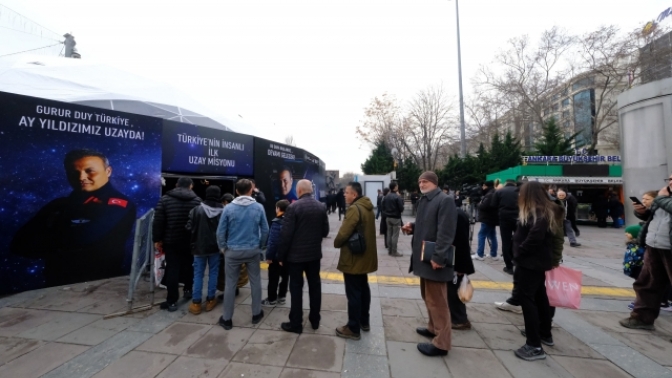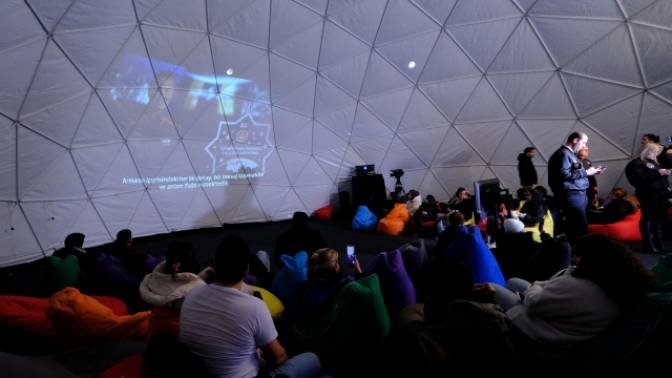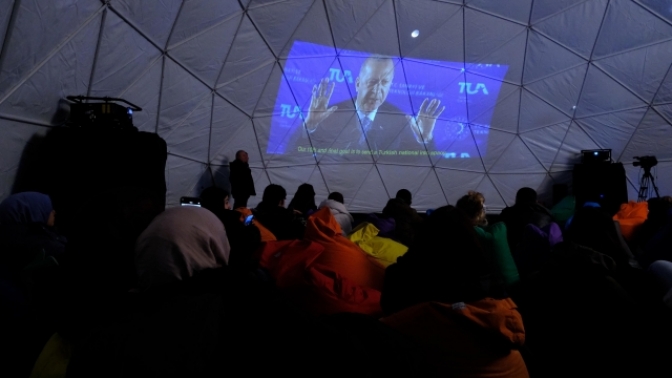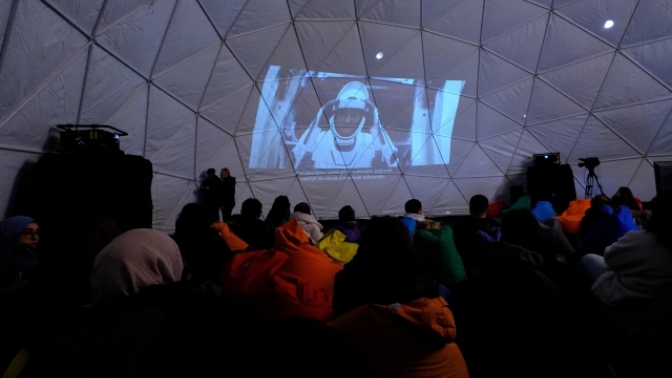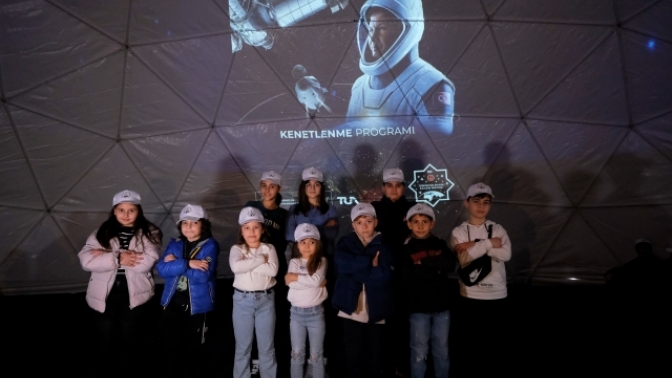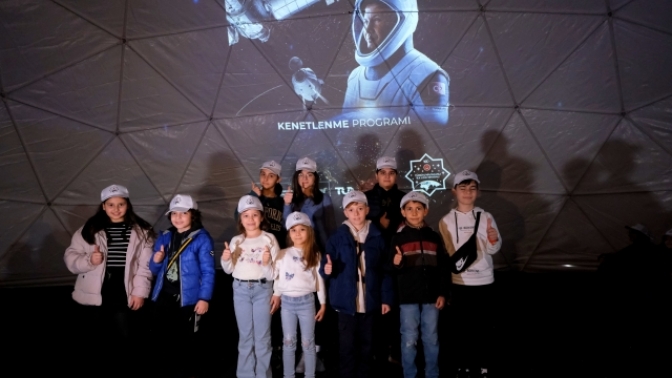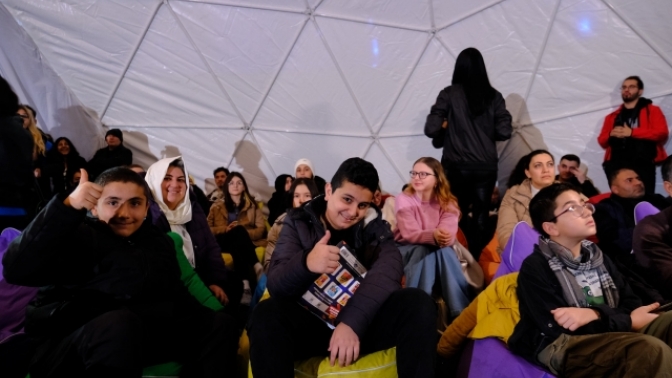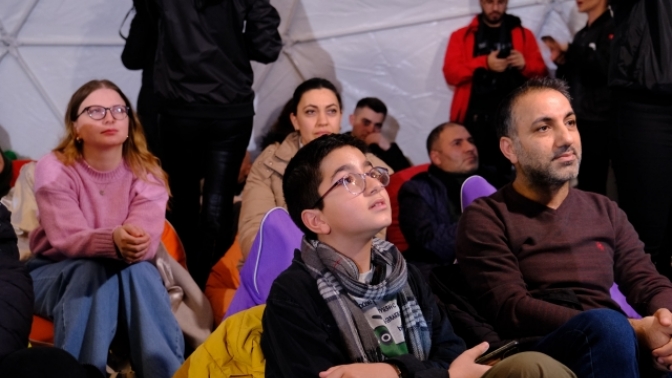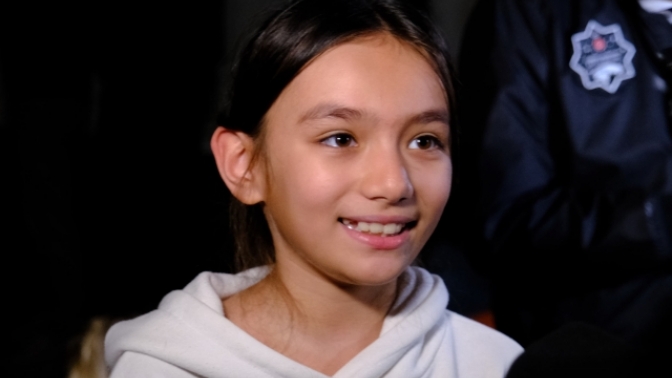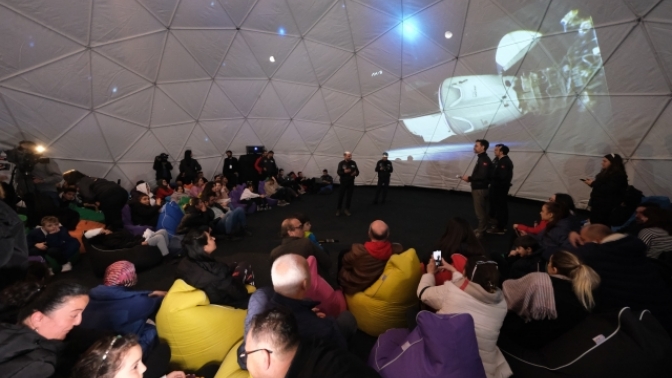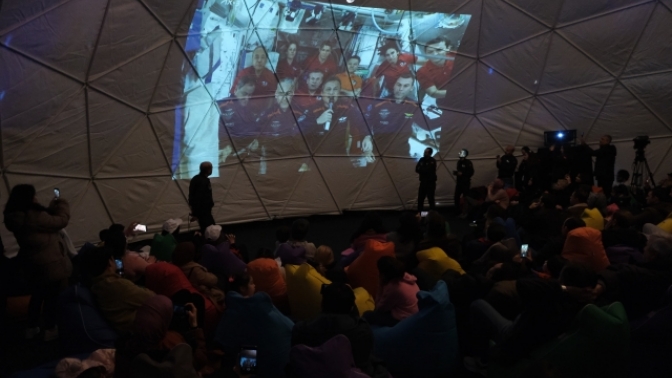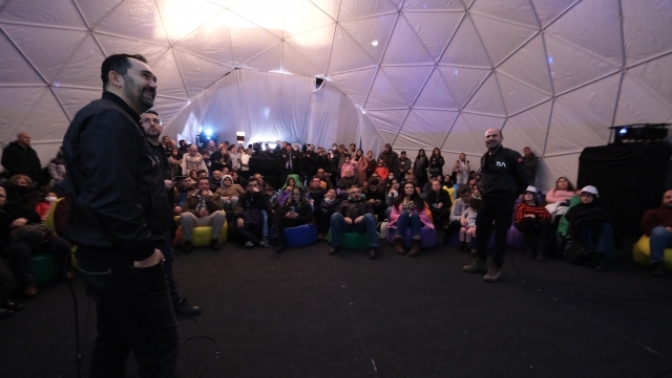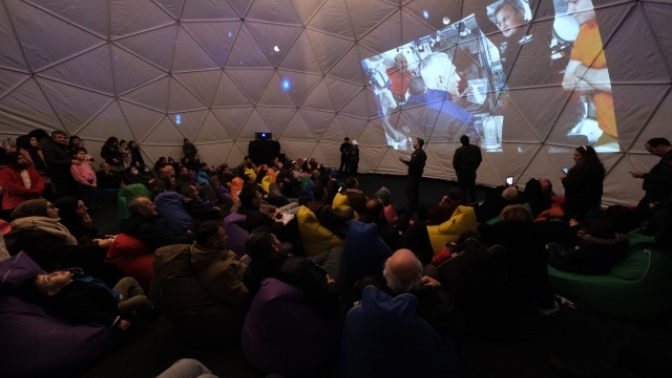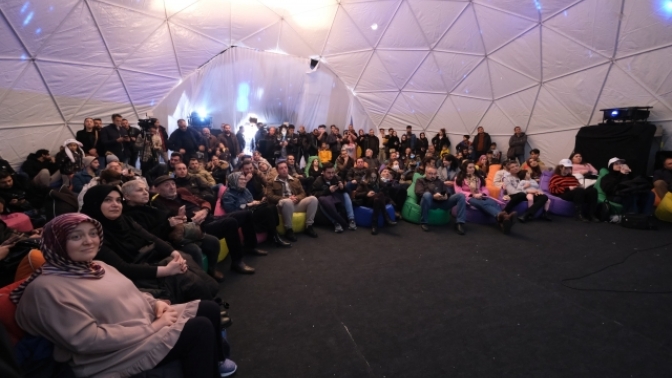The journey of the capsule carrying Türkiye's first astronaut Alper Gezeravcı to the International Space Station was completed after about a day and a half. The Dragon capsule, carrying Gezeravcı and three other astronauts, docked with the International Space Station (ISS) at 13:45. With the completion of all the procedures after the docking of the spacecraft, the Axiom-3 (Ax-3) crew entered the station. After docking, the astronauts' transition to the station was also completed without any problems.
After the capsule door was opened, Turkish Astronaut Alper Gezeravcı entered the station first. The astronauts who were already on the station hugged and welcomed them. During the welcome ceremony, AX-3 crew was offered fluids to alleviate dehydration. After their preparations, the first group photo of the AX-3 crew together with the rest of the astronauts on the ISS was taken. Immediately after the photo shoot, the team leader of the astronauts on the Station gave the welcome speech. Then the Ax-3 crew took the floor to give their first speeches onboard the ISS one by one.
Gezeravci repeated Mustafa Kemal Atatürk’s words in English during the welcome ceremony: "The future is in the skies"
In his speech at the welcoming ceremony, Alper Gezeravci said: "Thank you very much. First of all, I would like to thank you for your kind hospitality to the seven-member expedition team. They were actually waiting for us at the door. This was a very nice and kind welcome for us. I would like to thank everyone for the great effort they made to get us here during the last 8-month training period and to all our colleagues who contributed to our safe travel to the ISS. As Türkiye, we are happy to step into a first in our history. And we look forward to contributing to the science and research work here."
Gezeravcı, also speaking in Turkish from the space station, said: "I would like to express my gratitude to Gazi Mustafa Kemal Atatürk and his brothers-in-arms who founded the Republic of Türkiye and entrusted it to us, to all our martyrs who sacrificed their lives for our homeland, our state and our nation with their strong will that rendered our first step here possible. The future is in the skies."
The station was manned by 7 astronauts from Russia, the US, Japan and Denmark. With Gezeravcı and his team, this number increased to 11.
The docking was followed live from a Türkiye united as one
The public and the press flocked to the planetariums in Kızılay in Ankara and Taksim Square in Istanbul to watch the docking. The program was also watched live at Aksaray, Antalya, Bursa, Bursa, Gaziantep, Kayseri, Konya, Trabzon and Üsküdar Science Centres.
During the docking and the welcome moments at the station, Dr. Sadık Murat Yüksel and Can Bayraktar, Senior Chief and Chief Researchers of TÜBİTAK UZAY respectively, provided live commentary. Step by step, they shared details about the docking procedure and the following steps.
TÜBİTAK UZAY Director Mehmet Nefes and TÜBİTAK UZAY Senior Chief Researchers Dr. Burak Yağlıoğlu and Dr. Medeni Soysal also contributed to the program. Our experts also answered the questions of press that came to the planetarium to follow the program.
"Our Flag suits the International Space Station very well"
Alper Gezeravci's arrival at the station was greeted with great joy, with the audience expressing their joy with applause and screams. People in the planetariums were all touched by the speech of Gezeravcı. The shared opinion of the audience was "Our Turkish Flag suits space very well".
Scientific Studies
Within the scope of the Turkish Astronaut and Science Mission coordinated by TÜBİTAK UZAY, Gezeravcı will conduct 13 scientific experiments onboard the ISS, where he will stay for 14 days.
Michael Lopez-Alegria, Marcus Wandt and Walter Villadei, the rest of the Ax-3 crew, will also carry out scientific studies in various fields.
Upon completion of their mission, the Ax-3 crew is scheduled to return to Earth together with the same spacecraft that brought them to the ISS.


